Diving into the realm of beginner drones opens up a world of thrilling possibilities, from capturing breathtaking aerial views to mastering the art of flight. This blog post is designed to be your comprehensive guide, helping you navigate the expansive selection of drones suitable for beginners. With a focus on crucial factors like ease of use, flight time, camera quality, and GPS functionality, our aim is to demystify the process of selecting the perfect drone that meets your novice piloting needs. Whether your interest lies in stunning landscape photography, engaging in FPV racing, or simply savoring the joy of flying, the journey to finding the right beginner drone starts here. Let’s embark on this exciting adventure together, ensuring you’re well-informed and ready to take to the skies with confidence.
Table of Contents
Ease of Use: Beginner Drone Comparison
When venturing into the world of drones, the ease of use becomes a pivotal factor, especially for beginners. The best beginner drone is one that balances functionality with simplicity, allowing new pilots to enjoy flying without feeling overwhelmed by complex controls or features. In this segment, we’ll explore how the top beginner drones compare in terms of user-friendliness.
DJI Mini 3: The Gold Standard
The DJI Mini 3 stands out for its exceptional balance of simplicity and advanced features, making it an ideal choice for anyone’s first drone. Its lightweight folding design and intuitive controls cater perfectly to beginners. The drone’s automated shooting modes simplify aerial photography, letting beginners capture stunning footage with ease. This beginner drone is not just easy to control but also offers a seamless setup process, which is crucial for those eager to get flying without hassle.
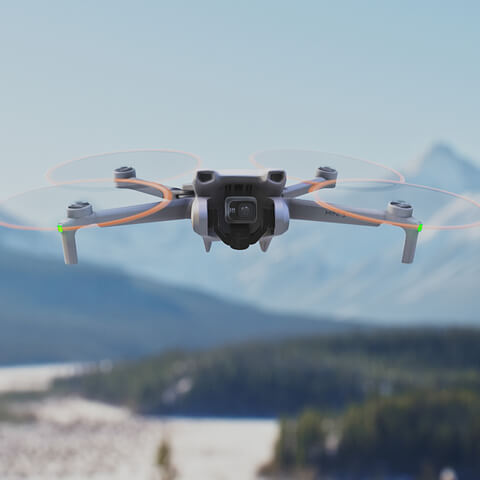
Ryze Tello: Budget-Friendly Simplicity
For those who are budget-conscious yet keen on diving into drone flying, the Ryze Tello offers a straightforward and enjoyable experience. Despite its affordability, this beginner drone doesn’t skimp on quality. Its responsive controls and simple app interface make it a breeze for beginners to navigate their first flight. However, its light weight means it’s more suited to indoor or calm outdoor conditions, which could limit where and when beginners choose to fly.

DJI Mini 4 Pro: Premium but User-Friendly
The DJI Mini 4 Pro might be on the premium side, but it doesn’t compromise on user-friendliness. Aimed at beginners with a bit more budget, this drone offers advanced features like omnidirectional obstacle sensing while maintaining an intuitive flying experience. Its higher price point is justified by the safety and peace of mind it offers to beginners, making it a worthwhile investment for those who want to start with a bit more capability.
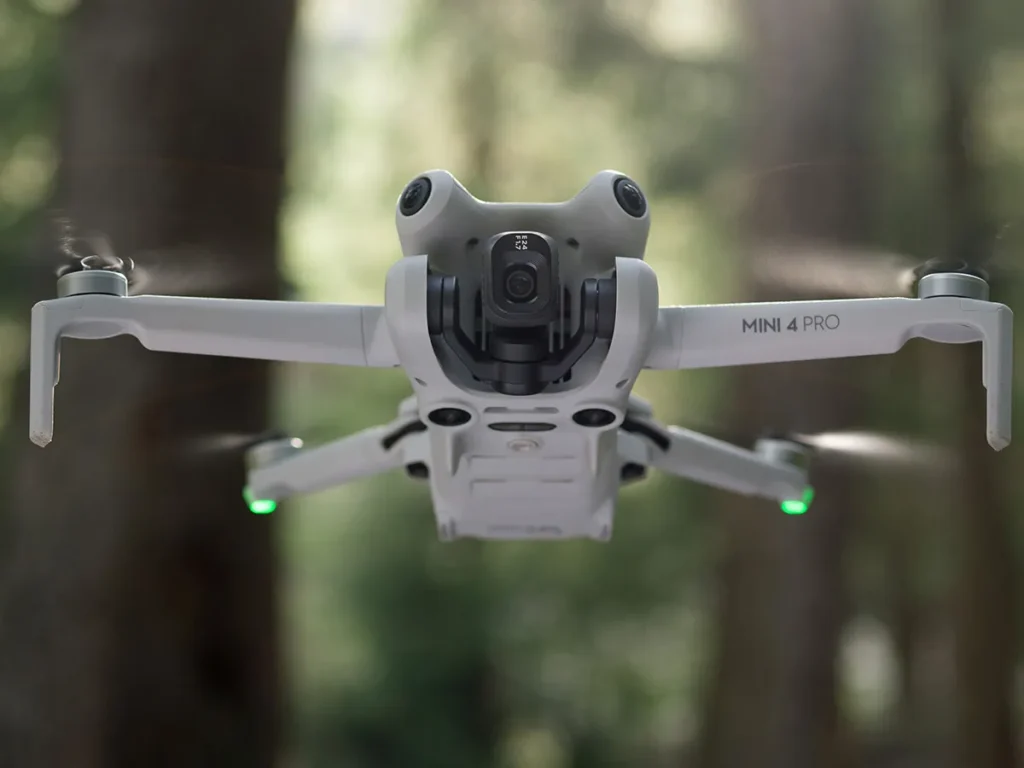
Autel Evo Nano+: A DJI Alternative
The Autel Evo Nano+ serves as a fantastic DJI alternative, providing beginners with a drone that’s not only easy to fly but also packed with features. Its big sensor and collision detection capabilities are wrapped in a user-friendly package, ensuring beginners can enjoy high-quality photography without a steep learning curve. The drone’s design focuses on ease of use, making it a great option for beginners looking for something different from DJI’s lineup.
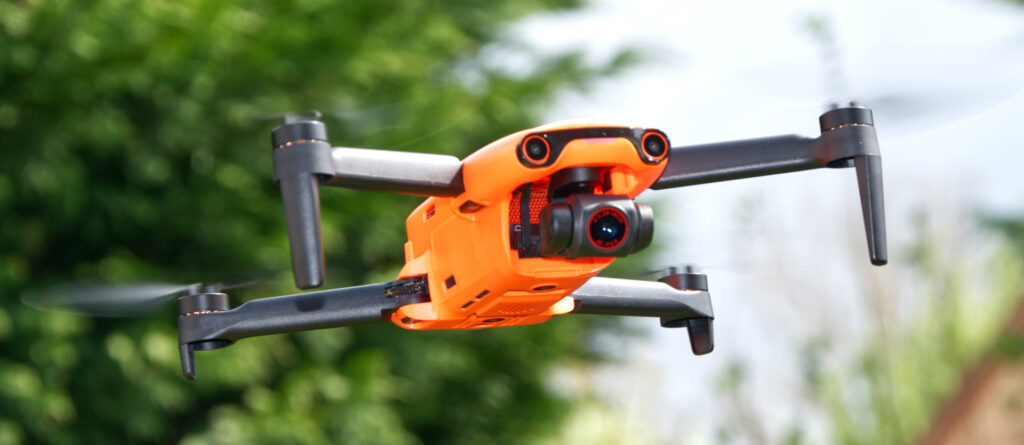
BetaFPV Cetus X: FPV Flying Made Simple
For beginners intrigued by first-person view (FPV) flying, the BetaFPV Cetus X is the perfect starting point. It offers a complete kit that simplifies the transition into FPV flying. While FPV flying has a reputation for being challenging, this beginner drone kit provides multiple flight modes to help ease beginners into the experience. It’s an excellent choice for those looking to explore FPV flying without getting bogged down by complexity.
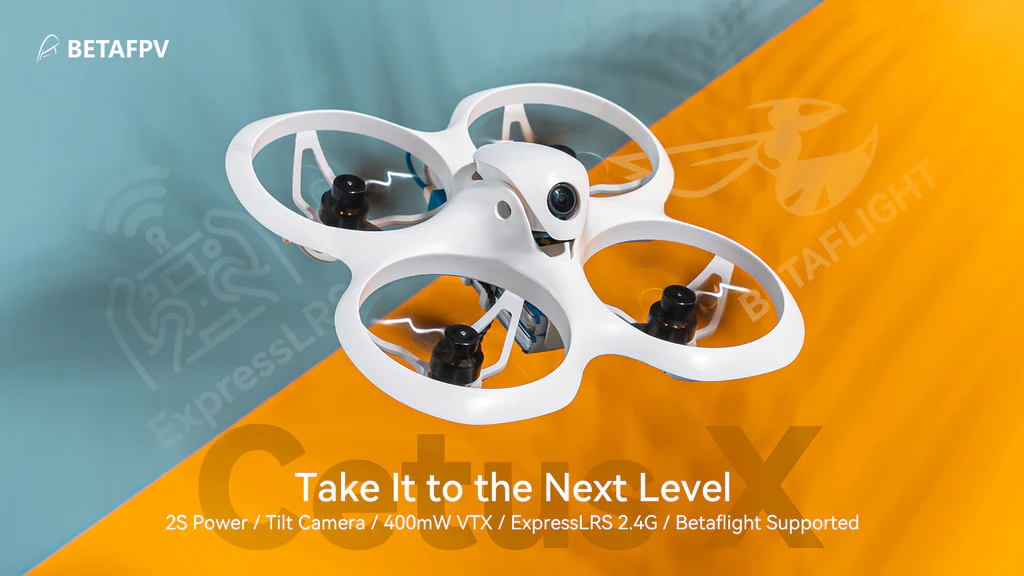
In conclusion, the ease of use is a critical factor in selecting a beginner drone. Whether you’re drawn to the balanced features of the DJI Mini 3, the budget-friendly Ryze Tello, the premium offerings of the DJI Mini 4 Pro, the alternative Autel Evo Nano+, or the FPV experience with the BetaFPV Cetus X, there’s a beginner drone that’s right for you. By starting with a drone that prioritizes a user-friendly experience, beginners can ensure a smoother and more enjoyable introduction to drone flying.
Flight Time: Beginner Drone Endurance Test
Flight time is a crucial consideration when choosing a beginner drone. It determines how long you can enjoy flying before needing a recharge or battery swap. This aspect can greatly affect your overall flying experience, especially for beginners eager to practice and improve their skills. Let’s delve into how the top beginner drones stack up in terms of flight time.
DJI Mini 3: Leading the Pack
The DJI Mini 3 impresses with a flight time of up to 31 minutes under optimal conditions. This duration is exceptional for a beginner drone, offering ample time for new pilots to explore, capture footage, and practice maneuvers. Its efficiency in battery usage sets a high standard, allowing beginners to maximize their time in the air.
Ryze Tello: Compact but Capable
Despite its small size and budget-friendly price, the Ryze Tello offers a respectable flight time of up to 13 minutes. For a drone in its class, this duration is sufficient for beginners to learn the basics and have fun. Its shorter flight time compared to more premium options reflects its position as an entry-level model, but it remains a fantastic choice for short, indoor flights or quick outdoor sessions.
DJI Mini 4 Pro: Premium Endurance
The DJI Mini 4 Pro extends the boundaries of flight time in the beginner drone segment, boasting up to 31 minutes, similar to the DJI Mini 3. This similarity in flight duration, coupled with its advanced features, makes it a top choice for beginners who prioritize both flight time and high-end specifications. The Mini 4 Pro ensures that pilots can enjoy extended flights without frequent interruptions for charging.
Autel Evo Nano+: A Close Contender
The Autel Evo Nano+ competes closely with DJI offerings, providing up to 28 minutes of flight time. This duration is impressive, especially considering its array of features tailored for beginners. The Evo Nano+’s flight time ensures that beginners have sufficient time to explore its capabilities and enjoy the flying experience to the fullest.
BetaFPV Cetus X: Specialized Flight Experience
The BetaFPV Cetus X, while an FPV beginner drone, offers a different flight time experience with up to 8 minutes on a single charge. While shorter than other models mentioned, it’s important to note that FPV flying is typically more intense and battery-consuming. For beginners interested in FPV, understanding and managing battery life becomes part of the learning curve.

In summary, flight time is a key factor that can significantly influence your decision when choosing a beginner drone. Whether you’re looking for the longest possible flights with the DJI Mini 3 or Mini 4 Pro, a budget-friendly option like the Ryze Tello, the feature-rich Autel Evo Nano+, or venturing into FPV flying with the BetaFPV Cetus X, considering how long each drone can stay airborne will help ensure a satisfying flying experience for beginners.
Range: Navigating the Distance with Beginner Drones
For novice pilots, understanding the range of a beginner drone is key to ensuring a safe and enjoyable flying experience. The range indicates how far your drone can travel from you, the controller, without losing connection—a critical factor in avoiding flyaways and maximizing exploratory possibilities. This section compares the range capabilities of the top beginner drones to help you choose the right model for your aerial adventures.
DJI Mini 3: Expansive Horizons
The DJI Mini 3 sets a remarkable standard for range among beginner drones, boasting an impressive distance of up to 10 kilometers (around 6.2 miles) under unobstructed and interference-free conditions. This extensive range opens up a world of possibilities for beginners, from capturing sweeping landscapes to exploring vast areas without losing control. For most beginners, however, it’s unlikely you’ll need to utilize the full range, but the capability provides a buffer for strong signal quality even at closer distances.
Ryze Tello: Modest but Adequate
Designed with simplicity and budget in mind, the Ryze Tello offers a more modest range of up to 100 meters (approximately 328 feet). While this may seem limited compared to more advanced models, it’s perfectly suited for indoor flying or small outdoor areas where beginners can maintain visual contact with their drone. This range ensures safety and ease of control for those just starting.
DJI Mini 4 Pro: Professional Distance
Mirroring the impressive capabilities of its sibling, the DJI Mini 4 Pro also enjoys a range of up to 10 kilometers, allowing for ambitious explorations and expansive aerial photography sessions. This feature, combined with its advanced obstacle sensing, makes the Mini 4 Pro a formidable choice for beginners who are serious about their drone flying ambitions and wish to invest in long-range capabilities.
Autel Evo Nano+: Competitive Reach
The Autel Evo Nano+ challenges DJI’s dominance with a commendable range of up to 10 kilometers, ensuring that beginners have the freedom to explore wide areas without concern for signal loss. This capability, paired with its collision detection technology, places the Evo Nano+ as a strong contender for beginners looking for a reliable and expansive flying experience.
BetaFPV Cetus X: FPV with Boundaries
Focusing on the immersive experience of FPV flying, the BetaFPV Cetus X offers a range tailored to this style of flying, with a practical limit of up to 600 meters (about 0.37 miles). This range is suitable for beginners in FPV flying, ensuring that they can enjoy the thrill of first-person view flying without straying too far and risking disorientation or loss.
In conclusion, the range of a beginner drone is a vital aspect that influences both the safety and the exploratory potential of your flying experience. Whether you’re drawn to the extensive reach of the DJI Mini 3 and Mini 4 Pro, the beginner-friendly confines of the Ryze Tello, the competitive range of the Autel Evo Nano+, or the FPV-specific BetaFPV Cetus X, understanding and choosing the right range for your needs is a step towards a rewarding and enjoyable drone piloting journey.
Camera Quality: Capturing the World Through Beginner Drones
In the realm of beginner drones, camera quality varies significantly across models, affecting how pilots can capture and share their aerial adventures. High-quality cameras in drones allow beginners to shoot stunning photos and videos from unique perspectives, making camera capabilities a critical factor for many when choosing their first drone. Let’s compare the camera quality across our top beginner drones to see which one might best suit your creative aspirations.
DJI Mini 3: Aerial Photography Champion
The DJI Mini 3 is renowned for its superior camera quality among beginner drones, featuring a 1/1.3-inch sensor capable of capturing 12MP photos and 4K video at 30 frames per second (fps). This drone offers exceptional image clarity, vibrant colors, and detailed textures, making it a fantastic choice for beginners passionate about aerial photography or videography. The ability to rotate the camera for vertical shooting further enhances its appeal for social media enthusiasts.
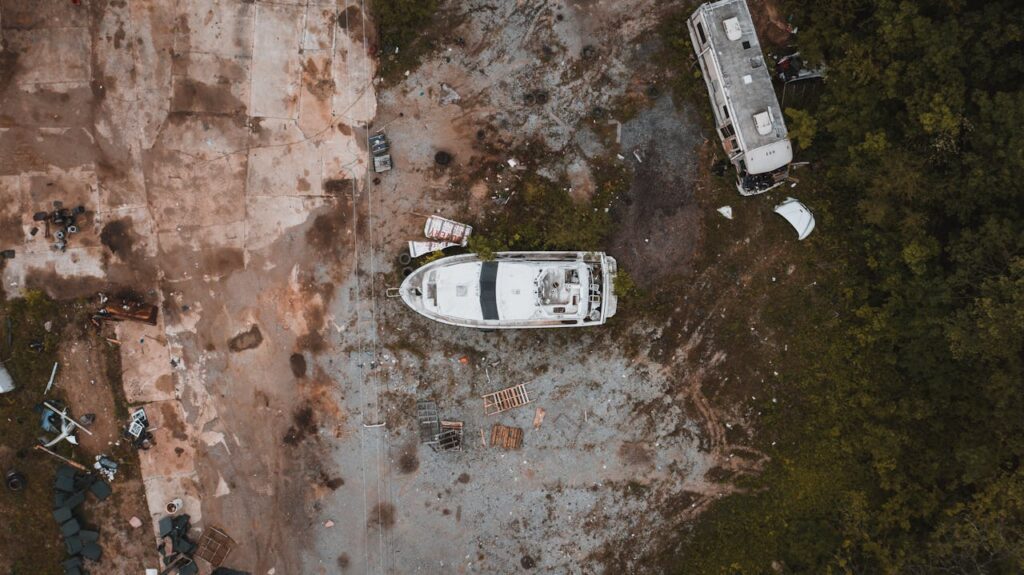
Ryze Tello: Entry-Level Imagery
Designed as an affordable entry point into the world of drones, the Ryze Tello sports a 5MP camera that delivers 720p HD video. While its camera might not compete with higher-end models, it’s perfectly adequate for beginners looking to learn the basics of drone photography and video capture without a significant investment. The Tello’s camera is a stepping stone to more advanced aerial imaging.
DJI Mini 4 Pro: Premium Visuals
Elevating the standard for camera quality in beginner drones, the DJI Mini 4 Pro features a robust camera system with a 1/1.3-inch sensor, capable of shooting 48MP photos and 4K video at up to 60 fps. Its advanced imaging capabilities, including support for HDR video, make it a top choice for beginners with a keen interest in capturing professional-grade aerial footage. The Mini 4 Pro’s camera excels in low-light conditions as well, ensuring versatility across various shooting environments.
Autel Evo Nano+: Impressive Alternative
The Autel Evo Nano+ stands out as a formidable competitor with a camera boasting a large 1/1.28-inch sensor, 50MP photos, and 4K video at 30 fps. Its exceptional low-light performance and rich detail capture set it apart, providing beginners with a powerful tool for high-quality aerial photography and videography. The Evo Nano+’s camera is especially suited for those looking to explore creative possibilities beyond basic shots.
BetaFPV Cetus X: FPV Focused
While the BetaFPV Cetus X is designed primarily for FPV flying rather than high-resolution photography or videography, it offers an immersive flying experience that traditional camera drones cannot match. Its camera is optimized for live streaming the pilot’s view in real-time, providing a unique perspective on drone flying. Though not on par with the others in terms of photo or video quality, it’s perfect for those more interested in the experience of flight than capturing high-quality images.
In summary, camera quality in beginner drones ranges widely, from simple cameras suitable for learning the basics to advanced systems capable of professional-grade photography and videography. Whether your priority is capturing stunning landscapes with the DJI Mini 3 or Mini 4 Pro, exploring drone photography on a budget with the Ryze Tello, seeking high-quality alternatives like the Autel Evo Nano+, or diving into the immersive world of FPV flying with the BetaFPV Cetus X, there’s a beginner drone to meet your creative needs and aspirations.
Stability and Hovering: The Foundation of Flight for Beginner Drones
Stability and hovering capabilities are crucial for any beginner drone. They not only ensure a smoother flying experience but also contribute significantly to the quality of aerial photography and videography. A drone that can maintain a steady hover can capture clearer images and provide a more manageable learning curve for new pilots. Let’s evaluate how our top beginner drones fare in terms of stability and hovering.
DJI Mini 3: Precision Hovering
The DJI Mini 3 stands out in the beginner drone category with its exceptional stability and hovering accuracy. Equipped with GPS and GLONASS, it can lock onto multiple satellites, ensuring precise positioning even in windy conditions. This capability is crucial for beginners who need a forgiving drone that can maintain its position for easier control and better photo capture.
Ryze Tello: Surprisingly Stable
For a budget-friendly option, the Ryze Tello offers impressive stability for its size and price. It utilizes a vision positioning system to hover more steadily, which is quite effective indoors or in low-wind environments. This makes it an excellent choice for beginners, particularly those interested in practicing their flying skills indoors.
DJI Mini 4 Pro: Advanced Hovering Technology
The DJI Mini 4 Pro builds upon the stability features of its predecessors, providing even more refined hovering capabilities. With enhanced GPS and an array of visual sensors, the Mini 4 Pro can maintain a stable hover with remarkable precision, making it ideal for capturing high-quality images and videos without the motion blur associated with less stable drones.
Autel Evo Nano+: A Steady Contender
The Autel Evo Nano+ competes closely with DJI models in terms of stability and hovering. It uses a combination of GPS and visual sensors to achieve a reliable hover, even in challenging conditions. This level of stability is excellent for beginners who want to focus on framing the perfect shot without worrying about drone drift.
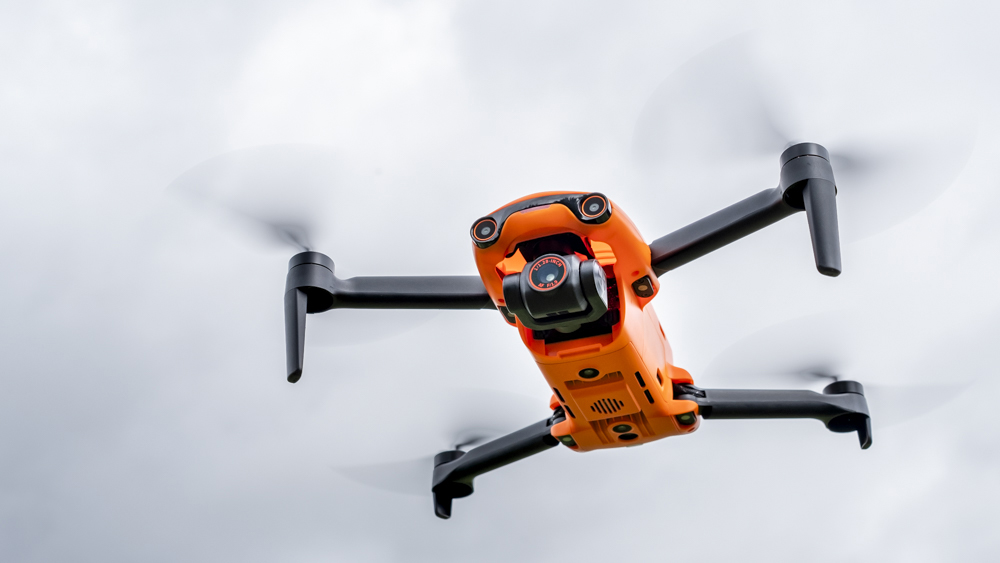
BetaFPV Cetus X: Stability in Motion
While the BetaFPV Cetus X is designed for FPV flying, it doesn’t neglect the importance of stability. Its hover is remarkably steady for an FPV drone, thanks to onboard stabilization systems. This stability makes it easier for beginners to learn FPV flying, reducing the risk of disorientation and crashes.
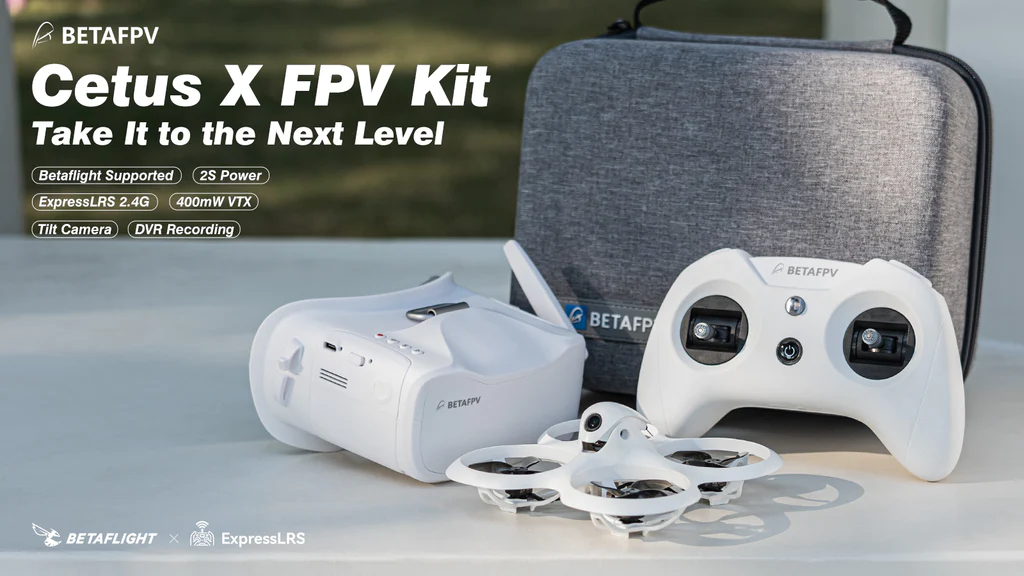
In conclusion, for beginner drone enthusiasts, choosing a model with solid stability and hovering capabilities is key to a rewarding flying experience. Whether it’s the GPS-enhanced precision of the DJI Mini 3 and Mini 4 Pro, the indoor friendliness of the Ryze Tello, the competitive steadiness of the Autel Evo Nano+, or the FPV-ready BetaFPV Cetus X, stability is a foundational feature that can define the success of your early drone piloting adventures.
Durability: Ensuring Your Beginner Drone Withstands the Learning Curve
Durability is a critical factor to consider when selecting a beginner drone. As novices are prone to the occasional crash or bump during their learning phase, a drone’s ability to withstand such incidents can greatly affect its longevity and the overall learning experience. Here, we examine the durability of the top beginner drones, providing insights into which models can best survive the trials of a new pilot’s journey.
DJI Mini 3: Robust Yet Lightweight
The DJI Mini 3 impressively balances lightweight construction with structural resilience. Built with high-quality materials, it can handle minor bumps and falls without significant damage. The drone’s foldable design not only makes it portable but also helps protect its propellers and arms when not in use. For beginners, the DJI Mini 3’s durability means more confidence while flying, knowing that it’s designed to endure the learning process.
Ryze Tello: Surprisingly Sturdy for Its Size
Despite its compact size and budget-friendly price, the Ryze Tello showcases commendable durability. Its lightweight frame and included propeller guards offer protection against light impacts and crashes. While it may not withstand severe crashes as well as heavier, more robust models, the Tello’s durability is suitable for indoor flying and learning the basics without constant fear of breakage.

DJI Mini 4 Pro: Premium Build Quality
The DJI Mini 4 Pro, like its predecessor, combines advanced technology with a durable design. Its high-quality materials and engineering mean it can withstand common beginner mistakes. Additionally, its obstacle avoidance system plays a crucial role in preventing crashes before they happen, indirectly contributing to its durability. For beginners ready to invest in a drone that pairs longevity with cutting-edge features, the Mini 4 Pro stands out.
Autel Evo Nano+: Durability in Diversity
The Autel Evo Nano+ is designed to compete directly with DJI’s offerings, not just in terms of features but also durability. Its robust construction ensures it can take a few knocks and continue flying. Moreover, its collision detection technology helps beginners avoid obstacles, reducing the chances of damaging impacts. This drone provides peace of mind for new pilots venturing outdoors.
BetaFPV Cetus X: Built for the Crash and Learn Cycle
FPV drones, by nature, are expected to endure crashes, especially in the hands of beginners. The BetaFPV Cetus X is built with this in mind, featuring a durable frame that can withstand the inevitable bumps and tumbles of FPV flying. Its design emphasizes resilience, allowing beginners to focus on mastering FPV flight techniques without undue worry about damaging their drone.
In summary, when it comes to choosing a beginner drone, considering durability is as important as any other feature. Whether you lean towards the DJI Mini 3 for its balanced design, the budget-friendly yet sturdy Ryze Tello, the premium and protective DJI Mini 4 Pro, the durable Autel Evo Nano+, or the crash-ready BetaFPV Cetus X, selecting a drone that can survive the learning curve will ensure a smoother and more enjoyable entry into the world of drone flying.
Price: Finding Value in Beginner Drones
Price is a pivotal factor for beginners entering the drone flying hobby. It’s about finding the right balance between cost and the features you need to enjoy flying and learn effectively. In this segment, we delve into the pricing of the top beginner drones, comparing what each offers to help you make a value-based decision on your first or next drone purchase.
DJI Mini 3: Affordability Meets Quality
The DJI Mini 3 represents a sweet spot for beginners, offering high-end features at a mid-range price. It’s an investment in quality and capability without stretching into the premium drone price territory. The Mini 3’s pricing reflects its position as a drone that beginners can grow with, offering more advanced features and better performance than the most basic models without the steep price of professional drones.
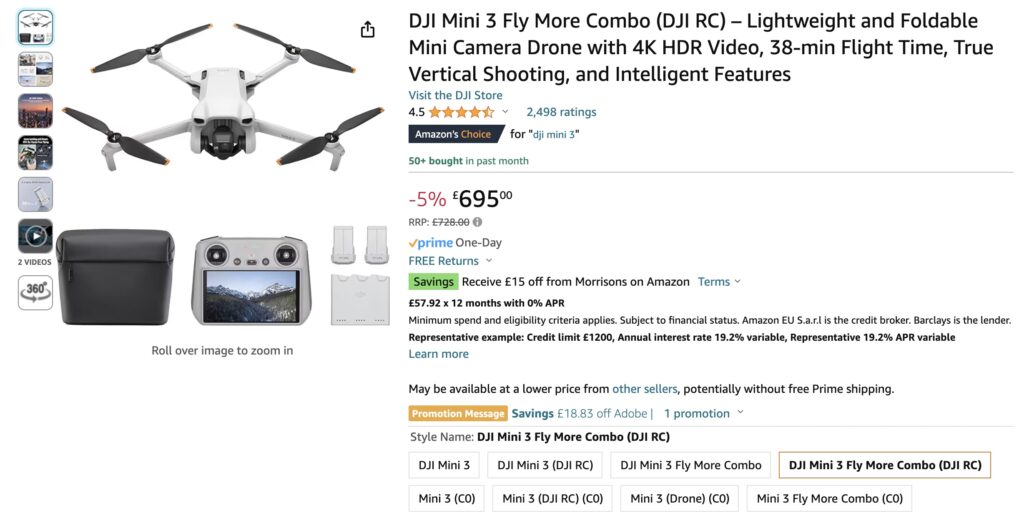
Ryze Tello: Exceptional Value for Beginners
As the most budget-friendly option in our list, the Ryze Tello is ideal for those just dipping their toes into drone flying. Its price is significantly lower than other drones discussed here, making it accessible for beginners who are hesitant to invest too much upfront. Despite its lower price, the Tello doesn’t skimp on the fun and educational aspects of drone flying, offering a solid introduction to the hobby.
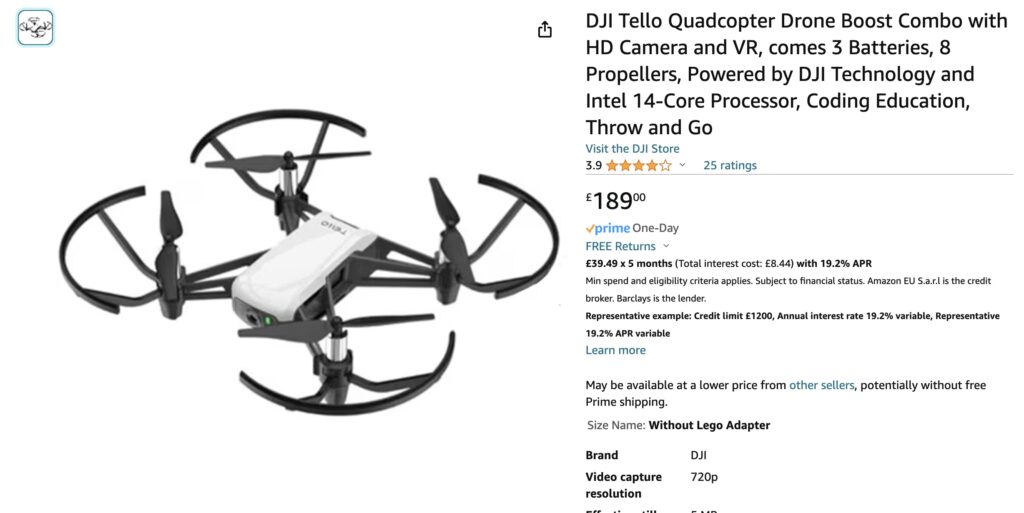
DJI Mini 4 Pro: Premium Price for Premium Features
The DJI Mini 4 Pro, as the most expensive drone in this lineup, offers advanced features and capabilities that justify its premium price. It’s targeted at beginners who are serious about their drone flying and willing to invest in top-tier technology from the start. The Mini 4 Pro’s price reflects its positioning as a drone that can satisfy both beginner needs and more advanced desires as skills improve.

Autel Evo Nano+: A Priced Competitor
The Autel Evo Nano+ comes in at a price point similar to the DJI Mini 3, positioning itself as a direct competitor with its own set of unique features. It offers beginners an alternative choice with a different brand’s take on a mid-range drone. The Evo Nano+’s pricing strategy aims to attract those looking for quality and durability akin to DJI’s offerings but with a slightly different feature set.
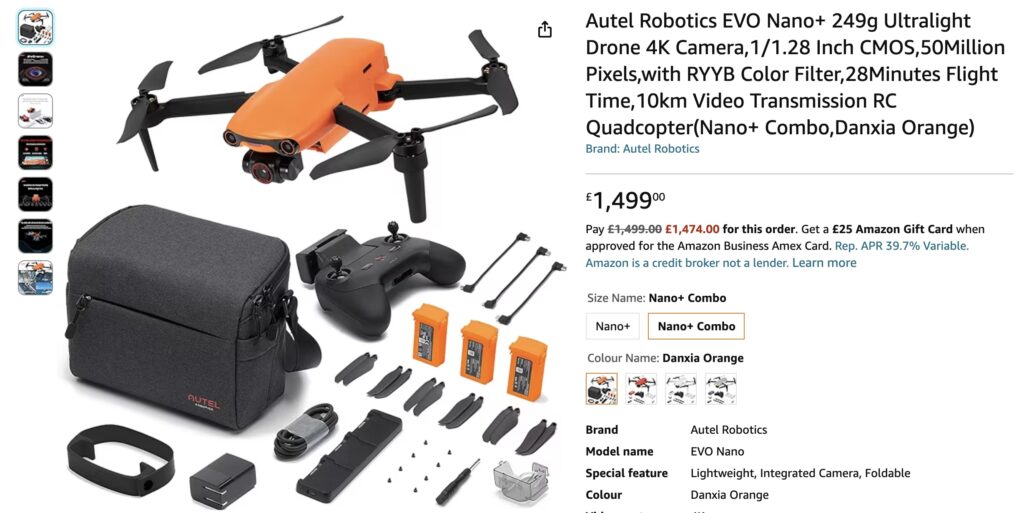
Buy Now on Amazon for £1499.00
BetaFPV Cetus X: Specialty FPV at an Accessible Price
For those interested in the immersive world of FPV flying, the BetaFPV Cetus X presents an affordable entry point. Priced lower than traditional beginner drones, it offers a specialized flying experience without a high financial barrier. This drone’s price makes FPV flying accessible to more beginners, reflecting the niche appeal and growing interest in first-person view experiences.
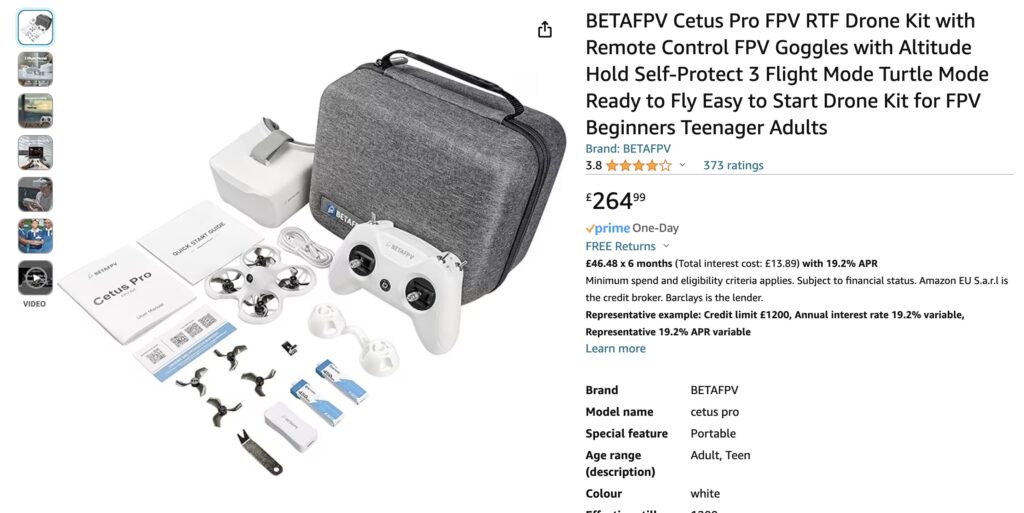
In conclusion, when selecting a beginner drone, considering the price is crucial, but it should always be weighed against the features, capabilities, and potential for growth. Whether you opt for the budget-friendly Ryze Tello, the mid-range DJI Mini 3 or Autel Evo Nano+, or decide to invest in the premium DJI Mini 4 Pro, understanding what each price point offers ensures that you find the best beginner drone for your needs and budget.
Battery Life and Charging Time: Powering Your Beginner Drone Experience
Battery life and charging time are pivotal factors that influence the flying experience of any beginner drone enthusiast. These elements determine how long you can fly before needing a recharge and how quickly you can get back in the air. This section delves into the battery performance of the top beginner drones, helping you understand which models will keep you flying longer and waiting less.
DJI Mini 3: Leading in Airtime Efficiency
The DJI Mini 3 stands out with an impressive battery life of up to 31 minutes, offering beginners ample time to practice, explore, and capture stunning aerial footage. Its charging time is relatively swift for its class, taking about 90 minutes to fully recharge, which means less downtime between flights. For beginners looking for a drone that balances long flight sessions with reasonable charging periods, the Mini 3 is an excellent choice.
Ryze Tello: Quick Charges for Short Sessions
With a more modest battery life of approximately 13 minutes, the Ryze Tello is designed for quick and casual flying sessions. However, it compensates with a rapid charging time of about 90 minutes, similar to that of the DJI Mini 3, but for a significantly shorter flight duration. This makes the Tello a good option for beginners who prefer short, frequent flights with minimal waiting.
DJI Mini 4 Pro: Extended Flights with Efficient Charging
Mirroring the high standards of its predecessor, the DJI Mini 4 Pro also offers a robust battery life of up to 31 minutes. Its charging time is on par with the DJI Mini 3, making it one of the best options for beginners who demand both longevity in the air and efficient charging. This drone caters to those who wish to maximize their flying time without lengthy interruptions.
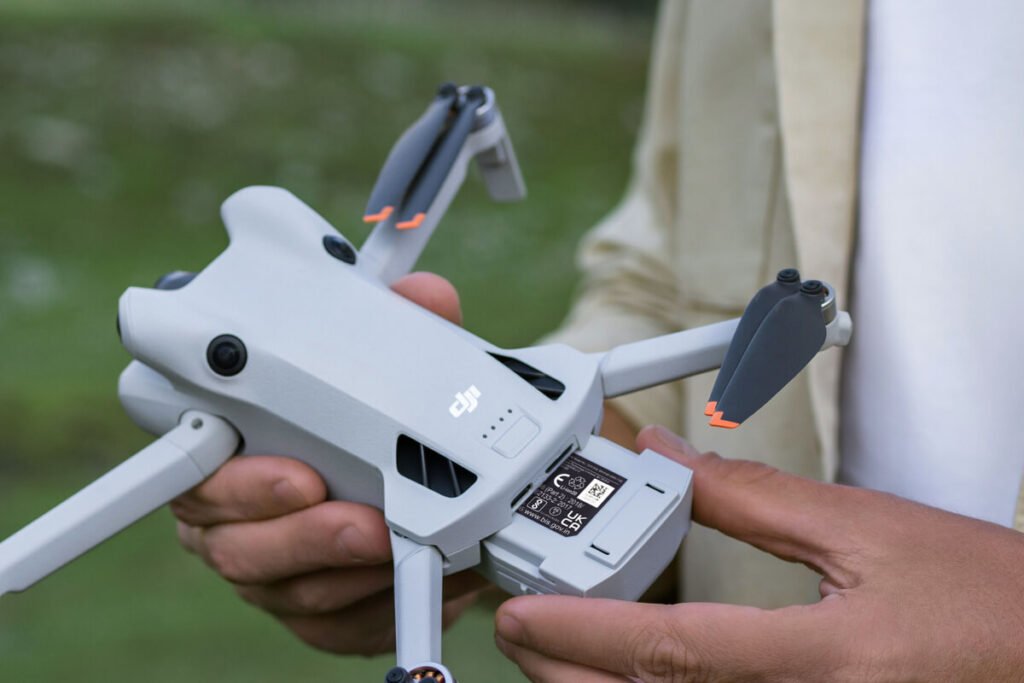
Autel Evo Nano+: Competitive Battery Performance
The Autel Evo Nano+ closely competes with DJI models, offering a commendable battery life of up to 28 minutes. Its charging time is slightly longer, around 120 minutes, but it’s a small price to pay for the duration and quality of flight it provides. For beginners inclined towards exploring without frequent charges, the Evo Nano+ presents a viable alternative.
BetaFPV Cetus X: Optimized for FPV Adventures
Specializing in FPV flying, the BetaFPV Cetus X offers a battery life tailored to its intense flight style, with up to 8 minutes of action-packed flying. Its charging time is relatively quick, allowing pilots to return to the skies in about 60 minutes. For FPV beginners, this means more time learning maneuvers and less time waiting for batteries to recharge.
In conclusion, when choosing your beginner drone, considering both battery life and charging time is essential to ensure a satisfying flying experience. Whether it’s the long-lasting DJI Mini 3 and Mini 4 Pro, the quick-charging Ryze Tello, the durable Autel Evo Nano+, or the FPV-ready BetaFPV Cetus X, selecting a drone that matches your flying habits and patience for charging will enhance your entry into drone piloting.
Obstacle Avoidance: Navigating Safely with Your Beginner Drone
Obstacle avoidance is an essential feature that enhances the safety and usability of drones, particularly for beginners. This technology allows drones to detect and navigate around obstacles, reducing the risk of crashes and damage during flight. Let’s explore how this critical feature plays out across the top beginner drones, ensuring you choose a model that keeps your flying experiences smooth and secure.
DJI Mini 3: Basic but Effective
While the DJI Mini 3 is celebrated for its portability and camera quality, it’s important to note that it lacks comprehensive obstacle avoidance sensors. However, it compensates with other safety features like downward vision sensors that help maintain stability and assist with safer landings. This makes the Mini 3 suitable for beginners who are willing to be a bit more cautious while flying in open spaces.
Ryze Tello: Learning Within Limits
The Ryze Tello, aimed at entry-level users, does not include obstacle avoidance technology. Instead, it relies on its lightweight design and ease of control to navigate spaces. Its vision positioning system aids in hovering and stability, making it easier for beginners to control. The Tello is best suited for indoor environments or outdoor areas with minimal obstacles, where the lack of obstacle avoidance is less of a concern.
DJI Mini 4 Pro: Advanced Obstacle Sensing
The DJI Mini 4 Pro represents a significant upgrade in obstacle avoidance capabilities among beginner drones. Equipped with omnidirectional obstacle sensing, the Mini 4 Pro can detect and navigate around obstacles from nearly every direction. This advanced feature provides beginners with a much safer flying experience, allowing them to focus on capturing great footage without worrying about unexpected collisions.
Autel Evo Nano+: Impressive Collision Avoidance
The Autel Evo Nano+ steps up as a strong competitor to DJI, offering robust obstacle avoidance capabilities. With front and rear sensors, the Nano+ can effectively detect obstacles and navigate safely around them. This feature is particularly appealing for beginners who seek the confidence to fly in more complex environments without compromising safety.

BetaFPV Cetus X: FPV Without Obstacle Avoidance
The BetaFPV Cetus X, designed for FPV flying, does not include obstacle avoidance technology. FPV drones typically require a more hands-on flying approach, with pilots relying on live video feeds to navigate. While this may present a steeper learning curve, it also offers an immersive flying experience. Beginners interested in FPV flying should be prepared for a more active role in avoiding obstacles.
In summary, obstacle avoidance is a feature that significantly affects the ease and safety of flying, especially for beginners. Whether it’s the more hands-on experience with the DJI Mini 3 and Ryze Tello, the enhanced safety of the DJI Mini 4 Pro and Autel Evo Nano+, or the immersive challenge of the BetaFPV Cetus X, choosing a beginner drone with the right level of obstacle sensing technology for your needs will ensure a more enjoyable and secure introduction to drone flying.
Portability: The Ease of Carrying Your Beginner Drone
Portability is a key factor for many drone enthusiasts, especially beginners who might want to practice or capture footage in various locations. A drone’s size, weight, and design significantly impact how easily it can be transported. Let’s explore the portability of the top beginner drones to help you find a model that you can easily take on your next adventure.
DJI Mini 3: Compact and Travel-Friendly
The DJI Mini 3 shines in the portability department with its lightweight design and foldable arms, making it an ideal travel companion. Weighing just under 249 grams, it avoids the need for registration in many countries, adding to its convenience. The Mini 3 fits comfortably in a small bag or the palm of your hand when folded, exemplifying what it means to combine performance with portability.
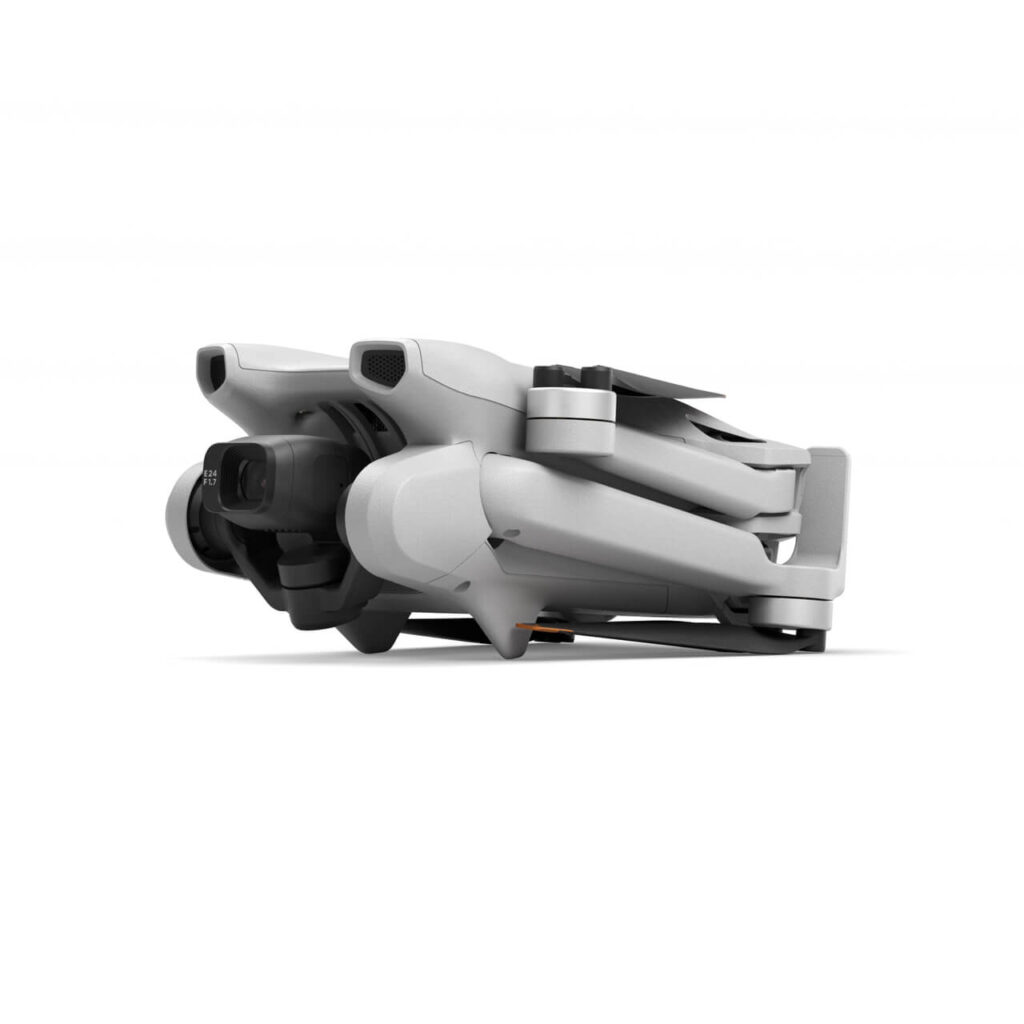
Ryze Tello: Pocket-Sized Practice Drone
The Ryze Tello, though not foldable, is incredibly lightweight and small, making it easy to carry around for impromptu flying sessions. Its diminutive size is perfect for indoor flights or packing along for a quick visit to a park. The Tello proves that even without foldable design features, a drone can still be highly portable and convenient for beginners.
DJI Mini 4 Pro: Ultimate Portability with Advanced Features
Like its predecessor, the DJI Mini 4 Pro offers the ultimate portable design without compromising on advanced features. It maintains the sub-250g weight category and features foldable arms, making it as easy to carry as the Mini 3. The Mini 4 Pro demonstrates that you don’t have to sacrifice camera quality or flying capabilities for the sake of portability.
Autel Evo Nano+: A Sturdy Companion on the Go
The Autel Evo Nano+ competes closely with DJI’s offerings in terms of portability. It also boasts a lightweight and compact design, with the added benefit of a robust construction that can withstand the rigors of travel. The Evo Nano+ is proof that portability and durability can go hand in hand, offering beginners a drone that’s easy to take anywhere.
BetaFPV Cetus X: FPV Portability Redefined
The BetaFPV Cetus X redefines portability in the FPV drone category. Its compact design and lightweight frame make it suitable for beginners eager to dive into FPV flying without being bogged down by bulky equipment. Though FPV drones require additional gear like goggles, the Cetus X’s design ensures the drone itself won’t be a burden to transport.
In conclusion, portability is a significant aspect to consider when selecting a beginner drone. Whether it’s the ultra-compact DJI Mini 3, the pocket-friendly Ryze Tello, the feature-rich DJI Mini 4 Pro, the durable Autel Evo Nano+, or the FPV-ready BetaFPV Cetus X, there’s a portable drone option to suit every beginner’s needs. Choosing a model that’s easy to carry means you’ll be more likely to take it on adventures, ensuring you get the most out of your drone flying experience.
GPS Functionality: Enhancing the Flight Experience for Beginner Drone Pilots
GPS functionality in drones has revolutionized the way we fly, navigate, and capture aerial footage. For beginner drone pilots, GPS is not just a feature but a foundational tool that enhances safety, stability, and navigational capabilities. This technology allows drones to hover more steadily, return home automatically, and track their location with precision. Let’s explore how GPS functionality is integrated into our top beginner drones, ensuring you choose a drone that offers the best navigational support for your flights.
DJI Mini 3: Precision Navigation
The DJI Mini 3 is equipped with advanced GPS functionality, enabling it to lock onto satellites quickly and maintain a stable hover with remarkable accuracy. This GPS support allows beginners to focus on flying and capturing footage without worrying about drift or losing their drone. Additionally, the Mini 3 utilizes GPS for its smart RTH (Return to Home) feature, ensuring it can safely navigate back to its takeoff point if needed.
Ryze Tello: Simplified GPS Experience
The Ryze Tello, designed with beginners and education in mind, does not feature standalone GPS functionality. Instead, it relies on a vision positioning system to maintain stability during flight. While this limits its navigational capabilities compared to GPS-equipped models, the Tello remains a great introductory drone for learning basic flight controls and principles within a controlled environment.
DJI Mini 4 Pro: Advanced GPS and Safety
The DJI Mini 4 Pro takes GPS functionality to the next level with its dual-band GPS system, ensuring even more precise positioning and stability. This drone’s GPS capabilities are integral to its enhanced safety features, including improved RTH, geofencing to prevent flights in restricted areas, and tracking for better flight planning. For beginners looking for a drone with top-notch navigational and safety features, the Mini 4 Pro is an exceptional choice.
Autel Evo Nano+: Robust GPS Integration
Like its DJI counterparts, the Autel Evo Nano+ boasts robust GPS functionality, facilitating precise hovering, easy navigation, and reliable RTH capabilities. The integration of GPS in the Evo Nano+ provides beginners with the confidence to explore their surroundings from the sky while ensuring the drone remains within a safe and controllable distance.
BetaFPV Cetus X: GPS for FPV Beginners
The BetaFPV Cetus X incorporates GPS in a manner tailored to FPV flying, offering beginners features like RTH on signal loss or low battery, which is crucial for new pilots learning to manage the unique challenges of FPV flight. This drone demonstrates how GPS technology can be adapted to different flying styles, ensuring safety and control even in the immersive world of FPV.
In conclusion, GPS functionality plays a pivotal role in modern drones, particularly for beginners. It offers a blend of navigational ease, safety, and flight stability that can significantly enhance the learning curve. Whether it’s the precise hovering and smart navigational features of the DJI Mini 3 and Mini 4 Pro, the entry-level focus of the Ryze Tello, the confident exploration enabled by the Autel Evo Nano+, or the tailored FPV experience of the BetaFPV Cetus X, choosing a beginner drone with the right GPS features will ensure a more enjoyable and secure introduction to drone piloting.
Software and Apps: Simplifying the Flight for Beginner Drone Pilots
In the world of drones, the software and accompanying apps play a crucial role in enhancing the flying experience, especially for beginners. These digital tools provide intuitive interfaces, flight tutorials, real-time data, and editing capabilities that can make flying and capturing footage more accessible and enjoyable. Let’s dive into how software and apps complement the functionality of our top beginner drones, ensuring you have the tools you need for a seamless introduction to drone piloting.
DJI Mini 3: DJI Fly App
The DJI Mini 3 is supported by the DJI Fly app, renowned for its user-friendly interface and comprehensive features. It offers beginners an easy entry point with tutorials, flight status information, and easy access to camera settings and controls. The app also includes advanced editing features, allowing pilots to create stunning videos and photos without needing separate editing software.
Ryze Tello: Tello App
Designed with beginners and education in mind, the Ryze Tello utilizes the Tello app to provide a straightforward flying experience. The app offers simple flight controls, pre-programmed maneuvers, and educational content that makes it perfect for new pilots and those interested in learning coding through drones. Its intuitive design ensures that even the most novice pilots can start flying with confidence quickly.
DJI Mini 4 Pro: Enhanced DJI Fly App
The DJI Mini 4 Pro also uses the DJI Fly app but leverages additional features and functionalities suitable for its advanced capabilities. The app not only supports basic flight operations but also provides access to intelligent shooting modes, advanced editing tools, and detailed flight data to help beginners take their skills to the next level. Its integration with the Mini 4 Pro ensures a seamless experience from takeoff to post-production.
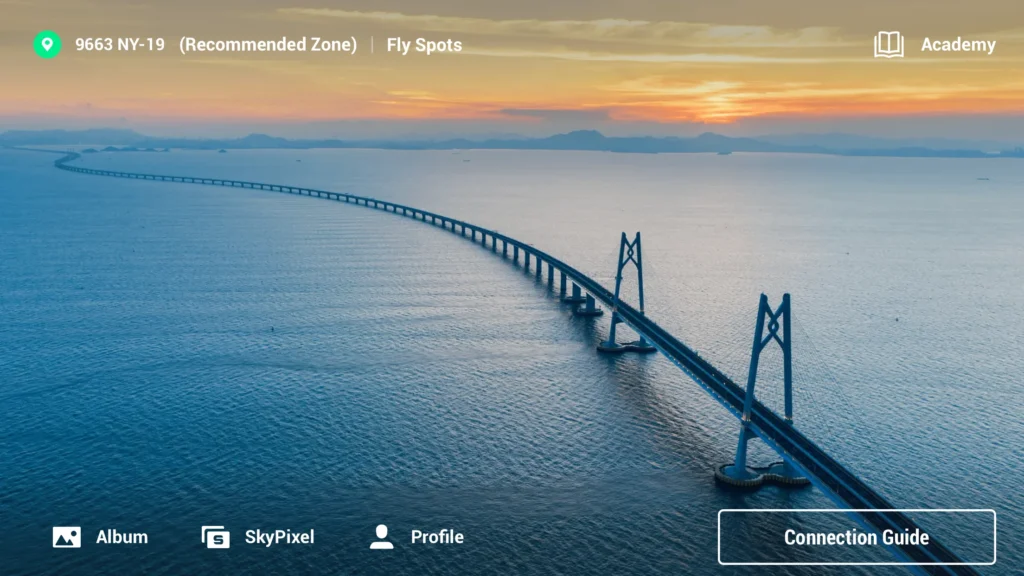
Autel Evo Nano+: Autel Sky App
The Autel Evo Nano+ is paired with the Autel Sky app, which offers a clean and intuitive interface for controlling the drone, adjusting camera settings, and accessing intelligent flight modes. The app is designed to be accessible for beginners, with a focus on ensuring a smooth flying experience. It also includes features for editing and sharing captured content directly from the app, making it a comprehensive tool for new drone enthusiasts.
BetaFPV Cetus X: BetaFPV App
While primarily focused on the FPV flying experience, the BetaFPV Cetus X is supported by an app that helps beginners understand FPV flight basics, manage settings, and adjust controls according to their comfort level. The app is tailored to support the unique needs of FPV pilots, providing essential information and adjustments in a user-friendly format.
In summary, the right software and app can greatly enhance the flying experience for beginner drone pilots, providing not just controls but also education, editing, and sharing capabilities. Whether it’s the comprehensive features of the DJI Fly app with the DJI Mini 3 and Mini 4 Pro, the beginner-friendly Tello app, the intuitive Autel Sky app with the Evo Nano+, or the FPV-focused BetaFPV app, selecting a beginner drone with supportive software will ensure a smoother and more enjoyable journey into drone flying.
Flight Modes: Enhancing Your Beginner Drone Experience
Flight modes are pivotal in defining the flying experience, offering both beginners and seasoned pilots the flexibility to adapt the drone’s behavior to their skill level and specific needs. From automated flight paths to manual control settings, these modes can significantly enhance the usability and enjoyment of flying a drone. Let’s examine the flight modes offered by our top beginner drones and how they cater to new pilots venturing into the skies.
DJI Mini 3: A Suite of Smart Modes
The DJI Mini 3 comes equipped with several intelligent flight modes designed to simplify the flying process for beginners while offering creative options for capturing aerial footage. These include QuickShots for automated cinematic shots, CineSmooth Mode for slower, more controlled movements, and a Beginner Mode that limits speed and range to help new pilots get accustomed to the controls.
Ryze Tello: Designed for Beginners and Education
The Ryze Tello, though more basic than its counterparts, offers flight modes that make it incredibly accessible for beginners and educational purposes. It includes Throw & Go, allowing pilots to launch the drone from their hand, and 8D Flips for performing simple aerial stunts. These modes not only make flying fun but also serve as a great introduction to drone dynamics.
DJI Mini 4 Pro: Advanced Flight Options
The DJI Mini 4 Pro enhances the flight mode offerings with features like FocusTrack for tracking subjects with precision, APAS (Advanced Pilot Assistance Systems) for obstacle avoidance while moving, and HDR mode for enhanced video capture. These advanced modes provide beginners with tools to create professional-level footage and enjoy safer flights as their skills progress.
Autel Evo Nano+: Customizable Flight Experiences
The Autel Evo Nano+ offers a mix of flight modes tailored to both novice and experienced pilots. With modes like Dynamic Track for following moving subjects, Rocket for vertical ascent shots, and Dual Stability for switching between smooth and sporty flying, beginners have a variety of options to explore and grow their flying capabilities.
BetaFPV Cetus X: FPV Racing and Training Modes
Specializing in FPV flying, the BetaFPV Cetus X includes modes that cater to the unique challenges of first-person view flight. It offers a Stability Mode for beginners to learn with self-leveling, a Horizon Mode for mixed control with some self-leveling, and an Acro Mode for full manual control, allowing pilots to gradually transition from basic flying to racing and acrobatic maneuvers.
In conclusion, flight modes play a crucial role in the beginner drone flying experience, offering a pathway for skill development and creative expression. Whether it’s the automated cinematic capabilities of the DJI Mini 3, the educational and fun aspects of the Ryze Tello, the professional-grade options of the DJI Mini 4 Pro, the versatile Autel Evo Nano+, or the FPV-focused BetaFPV Cetus X, choosing a beginner drone with the right flight modes can significantly enhance your piloting journey.
Customer Support and Community: Navigating Your Beginner Drone Journey
For beginner drone pilots, having access to reliable customer support and a vibrant community can make all the difference in the flying experience. These resources not only provide assistance during technical difficulties but also offer valuable advice, tips, and shared experiences that can greatly enhance learning and enjoyment. Let’s explore the customer support and community surrounding our top beginner drones to help you choose a brand that stands by its pilots.
DJI Mini 3: Extensive Support and Global Community
DJI, the maker of the Mini 3, is renowned for its comprehensive customer support system, offering extensive online resources, live chat, and phone support to address technical issues and queries. Additionally, DJI boasts a vast global community of drone enthusiasts. This community is active on various platforms, including official forums, social media groups, and YouTube channels, where users share tips, footage, and advice.
Ryze Tello: Accessible Support with Educational Focus
While the Ryze Tello might be a more budget-friendly option, it benefits from Ryze’s commitment to customer support and its educational partnership with DJI. Tello pilots have access to a dedicated support system for troubleshooting. The Tello enjoys a unique position with strong ties to educational communities, where teachers and students alike share insights and projects, especially in programming and STEM learning.
DJI Mini 4 Pro: Premium Support for a Premium Drone
Owners of the DJI Mini 4 Pro can expect the same high level of customer support as other DJI products, with added attention due to the drone’s premium status. The Mini 4 Pro benefits from DJI’s extensive tutorial library, responsive customer service, and a large online community that includes professional pilots. This community is invaluable for beginners seeking to learn from experienced users and professionals.
Autel Evo Nano+: Dedicated Support and Growing Community
Autel Robotics offers solid customer support for Evo Nano+ pilots, including detailed online resources, direct support channels, and active social media engagement. Although Autel’s community might be smaller compared to DJI’s, it is rapidly growing and highly passionate, with members keen on helping each other and sharing their flying experiences with the Evo Nano+.
BetaFPV Cetus X: FPV Community and Support
BetaFPV provides specialized support for the Cetus X, catering to the unique needs of FPV pilots. Their customer service includes FPV-specific guidance and troubleshooting. The BetaFPV community, particularly in FPV circles, is vibrant and welcoming, offering a wealth of knowledge for beginners interested in diving into first-person view flying. Online forums and social media groups dedicated to FPV flying are excellent resources for Cetus X pilots.
In summary, both customer support and community presence are vital considerations for beginner drone pilots. Whether it’s the extensive resources and global network offered by DJI for Mini 3 and Mini 4 Pro pilots, the educational support for Ryze Tello users, the dedicated assistance and passionate community for Autel Evo Nano+ pilots, or the specialized FPV support and camaraderie for BetaFPV Cetus X owners, choosing a drone with strong backing can greatly enrich your flying journey, providing both technical support and a sense of belonging.
Conclusion: Embarking on Your Beginner Drone Journey
Choosing your first drone is an exciting step into a world of aerial photography, exploration, and creativity. Throughout this blog post, we’ve navigated through various critical aspects that make a beginner drone suitable for your individual needs—covering ease of use, flight time, range, camera quality, stability and hovering, durability, price, battery life and charging time, obstacle avoidance, return-to-home function, portability, GPS functionality, software and apps, flight modes, and finally, customer support and community.
Whether you’re drawn to the DJI Mini 3 for its exceptional balance of features and user-friendliness, the affordability and educational value of the Ryze Tello, the advanced capabilities of the DJI Mini 4 Pro, the competitive features of the Autel Evo Nano+, or the immersive FPV experience offered by the BetaFPV Cetus X, the key is to choose a drone that aligns with your priorities and flying aspirations.
Remember, the journey of becoming a proficient drone pilot is as much about the community and support you surround yourself with as it is about the hardware you choose. Engage with online forums, connect with local flying groups, and never hesitate to seek advice from experienced pilots. The drone community is known for its welcoming spirit and willingness to help beginners soar.
As you take off on this exciting adventure, consider not just the specs of your beginner drone, but also how it will grow with you as your skills advance. The right drone will not only provide a solid foundation for learning but will also inspire you to explore new horizons, capture stunning perspectives, and perhaps most importantly, enjoy every moment of flight.
Happy flying!


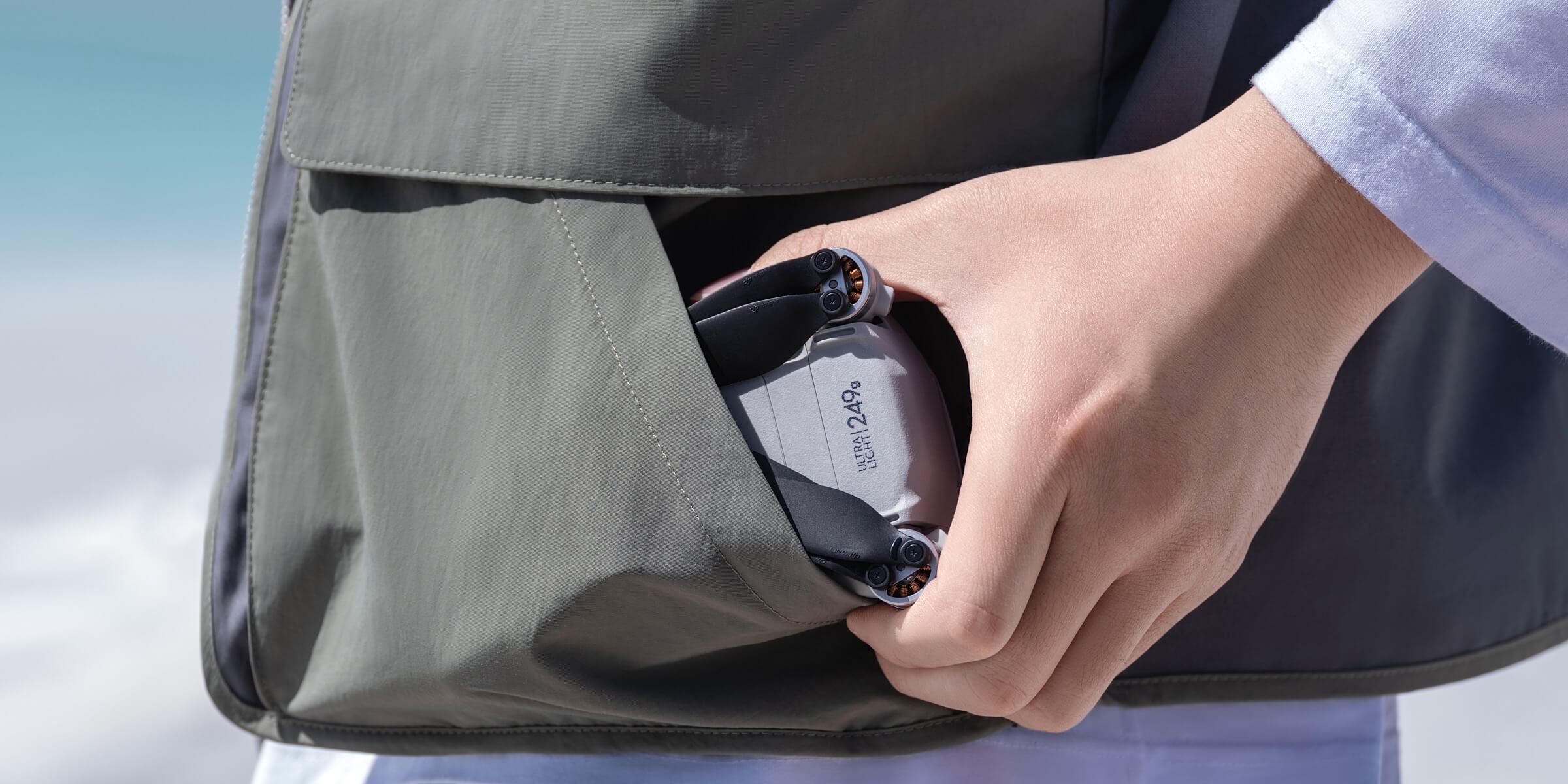
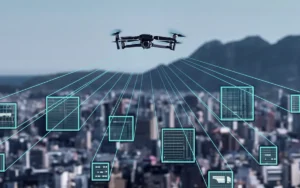
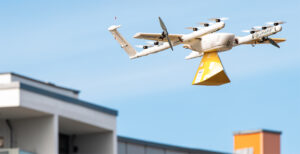
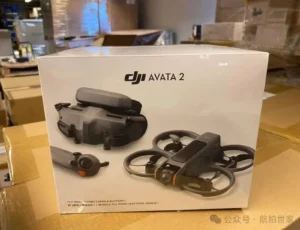
Pingback: Drone Assist: Your Key To Seamless And Secure Aerial Operations - Drone Gigs
Pingback: DJI Air 3S Leak Review: Features, Performance, and Why It's a Game-Changer - Drone Gigs
Pingback: Why Chinese Drones are Dominating the Market in 2024: A Detailed Review - Drone Gigs
Pingback: Best Drones for Fishing in 2024: Top Picks, Features, and How to Use Them Effectively - Drone Gigs